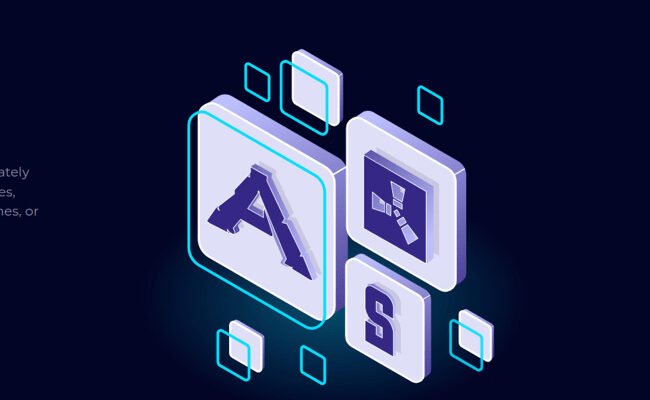The global gaming industry has seen exponential growth over the past decade, with online multiplayer games taking center stage. From sprawling battle royales and competitive eSports titles to cooperative survival games and sandbox worlds, online gaming demands more than just a good internet connection—it requires powerful, reliable, and customizable gaming server hosting.
This article offers a complete guide to online gaming server hosting, exploring its purpose, types, benefits, technical requirements, top providers, costs, and how to choose the right setup for different types of games.
Table of Contents
- Introduction to Gaming Server Hosting
- What Is a Game Server?
- Why Use a Dedicated Game Server?
- Types of Gaming Servers
- Key Features of Quality Game Hosting
- Top Game Server Hosting Providers in 2025
- How to Set Up a Game Server
- Costs Involved in Hosting Game Servers
- Self-Hosting vs. Managed Hosting
- Use Cases by Game Genre
- Security Considerations
- Cloud Gaming and Its Impact on Hosting
- Future Trends in Game Server Hosting
- Final Thoughts
1. Introduction to Gaming Server Hosting
Online gaming server hosting refers to the infrastructure and technology used to run multiplayer game worlds over the internet. Instead of relying on peer-to-peer connections, many games now require robust server setups to handle real-time data, reduce latency, manage player actions, and ensure fair and uninterrupted gameplay.
Server hosting is especially vital for games that support:
- Large concurrent player bases
- Real-time combat or strategy
- Persistent game worlds
- Competitive matches or ranked systems
Whether you’re a game developer, a community admin, or a dedicated gamer, choosing the right hosting solution can significantly enhance your gaming experience.
2. What Is a Game Server?
A game server is a remote or local computer that hosts a multiplayer game. It acts as the authoritative source of the game world and synchronizes player actions. There are typically two types:
- Dedicated Servers: Hosted on remote machines or data centers. Players connect to a central server that controls the entire game environment.
- Listen Servers: Run on a player’s device and host the game session while also playing it.
Dedicated servers are favored for commercial and high-performance multiplayer experiences due to their stability and fairness.
3. Why Use a Dedicated Game Server?
1. Stability and Performance
Dedicated servers provide superior uptime and processing power, which is essential for maintaining game integrity, especially under heavy load.
2. Low Latency
Quality server hosting ensures faster data transmission, reducing lag and enhancing player experience—especially for real-time FPS and MOBA games.
3. Customization
Admins can control the game rules, mods, plugins, map rotations, and access levels, tailoring the server to their community.
4. 24/7 Availability
Unlike listen servers, dedicated servers stay online even when the host is offline, ensuring round-the-clock access for global players.
5. Scalability
Server hosting services can scale resources as the number of players grows, preventing crashes or slowdowns.
4. Types of Gaming Servers
1. Dedicated Servers
- Standalone machines exclusively for gaming.
- Offer top performance, full root access, and high reliability.
2. Virtual Private Servers (VPS)
- Shared physical servers segmented into virtual instances.
- Affordable and flexible, ideal for smaller communities or modded servers.
3. Cloud-Based Servers
- On-demand, scalable infrastructure (AWS, Google Cloud, Azure).
- High scalability and global reach, good for enterprise-level gaming.
4. Peer-to-Peer (P2P) Servers
- Player-to-player connection without a central server.
- Low cost but unreliable for competitive or large-scale gaming.
5. Key Features of Quality Game Hosting
When selecting a hosting provider, consider the following essential features:
A. DDoS Protection
Prevents server downtime caused by distributed denial-of-service attacks—a common threat in online gaming.
B. Global Server Locations
Multiple data centers allow you to choose servers close to your target players, reducing latency.
C. Custom Control Panel
Provides an intuitive interface for managing server settings, plugins, backups, and game files.
D. One-Click Mod Installation
Especially important for games like Minecraft, ARK, and Valheim, where mods enrich gameplay.
E. Automatic Backups
Protects against data loss, crashes, or unwanted updates by saving regular server snapshots.
F. Scalable Resources
Ability to upgrade CPU, RAM, and bandwidth based on demand.
6. Top Game Server Hosting Providers in 2025
1. HostHorde
- Specializes in Minecraft hosting
- Unlimited slots, SSD storage, and automatic backups
2. GTXGaming
- Supports over 100 games including ARK, Rust, and Valheim
- Global data centers and easy modding tools
3. Nodecraft
- Beautiful UI and focus on usability
- Hourly billing and cloud flexibility
4. ScalaCube
- Known for Minecraft and ARK hosting
- Free web hosting for server websites
5. Amazon GameLift
- AWS-powered cloud infrastructure
- Ideal for developers building scalable multiplayer games
6. OVHcloud
- Bare-metal and VPS hosting
- Cost-effective for advanced users with networking knowledge
7. How to Set Up a Game Server
Step-by-Step Setup:
- Choose Your Game – Determine server requirements.
- Select a Hosting Type – VPS, dedicated, or cloud-based.
- Buy a Hosting Plan – Choose provider based on game and budget.
- Install the Game Server Software – Either manually or through the provider’s control panel.
- Configure Ports – Open required ports on your firewall/router.
- Upload Mods/Plugins – Customize your game environment.
- Test and Launch – Join the server, check performance, and invite players.
8. Costs Involved in Hosting Game Servers
The cost of hosting varies widely based on game, player count, and resource usage.
| Server Type | Monthly Cost (2025 Est.) |
|---|---|
| Shared Hosting | $5 – $15 |
| VPS Hosting | $10 – $60 |
| Dedicated Server | $80 – $300+ |
| Cloud Hosting | $0.10 – $2.00/hour |
Other potential costs include:
- Domain name (for server websites)
- Premium plugins or mod packs
- Additional storage or backups
9. Self-Hosting vs. Managed Hosting
Self-Hosting:
- You manage everything on your own system or rented machine.
- Ideal for tech-savvy users.
- Lower cost, but time-consuming and riskier.
Managed Hosting:
- Hosting company manages software, security, updates, and performance.
- Ideal for communities or streamers.
- Higher cost, but hassle-free.
10. Use Cases by Game Genre
1. Sandbox/Survival Games (e.g., Minecraft, ARK)
- Require strong modding support, backups, and storage.
- Popular among community-driven players.
2. First-Person Shooters (e.g., CS:GO, Battlefield)
- Need low latency and tick-rate control for competitive accuracy.
3. MMORPGs (e.g., WoW private servers)
- Require high memory, persistent worlds, and database management.
4. Real-Time Strategy (e.g., Age of Empires)
- Require CPU power and real-time synchronization across players.
5. MOBA (e.g., Dota 2, League of Legends clones)
- Demand extremely low lag and quick match setups.
11. Security Considerations
Game servers are attractive targets for hackers and trolls. Implement the following security measures:
- Enable DDoS protection
- Use firewalls and rate limits
- Backup frequently
- Limit admin access
- Use whitelisting or password protection
- Stay updated with patches
12. Cloud Gaming and Its Impact on Hosting
Cloud gaming platforms like NVIDIA GeForce NOW, Xbox Cloud Gaming, and Google Stadia have introduced new models where players stream games instead of hosting or downloading them.
While this reduces the need for private servers in casual gaming, dedicated hosting remains crucial for:
- Custom experiences
- Persistent private worlds
- Competitive tournaments
- Community-managed mods
13. Future Trends in Game Server Hosting
As of 2025, here are some of the most impactful trends:
A. Edge Computing
Deploying game servers closer to players via edge nodes reduces latency significantly.
B. AI for Server Management
AI tools optimize performance, auto-scale servers, and detect DDoS attacks or cheating.
C. Decentralized Game Hosting
Blockchain-based game servers and P2P networks offer new models of ownership and revenue sharing.
D. Cross-Platform Synchronization
Game hosting services are beginning to support cross-play across consoles, PC, and mobile.
E. Eco-Friendly Hosting
Green data centers with renewable energy sources are becoming popular due to environmental concerns.
14. Final Thoughts
Online gaming server hosting is no longer a niche domain for tech experts—it’s a foundational part of the gaming ecosystem. Whether you’re hosting a private Minecraft world for friends or managing a 500-player ARK server, the right hosting solution empowers you to create stable, secure, and immersive gaming experiences.
By understanding the technologies, features, and providers available in 2025, gamers and developers can make smarter decisions that enhance performance and player satisfaction.




